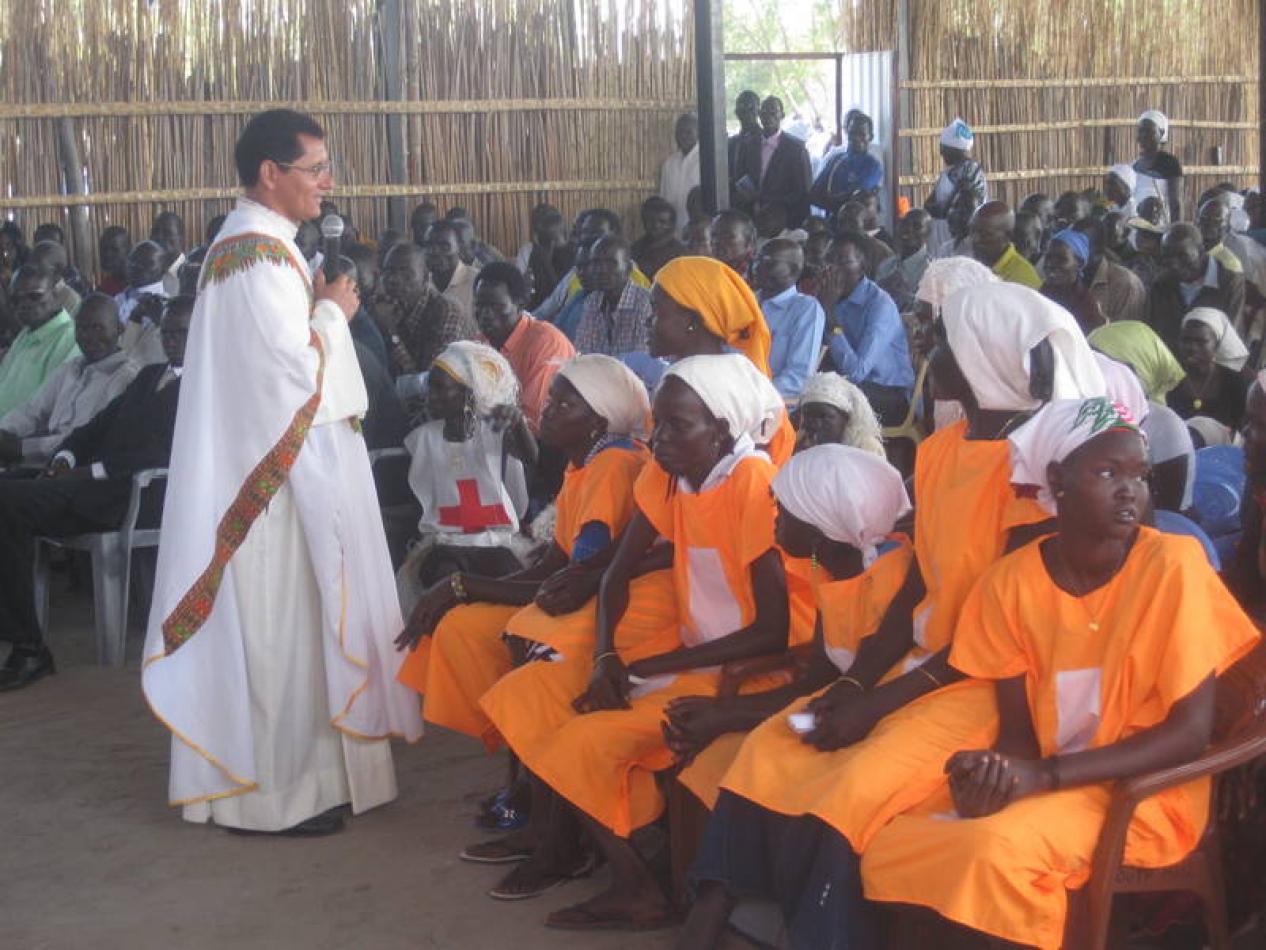Daniel Comboni
Comboni Missionaries
Institutional area
Other links
Newsletter
Monday, February 28, 2022
Faced with the various current ways of eliminating or ignoring others, Fratelli tutti challenges us to be “able to react with a new dream of fraternity and social friendship” (6) and shows us the ways to do so. It speaks of fraternal love in its universal dimension and of openness to all. It is an invitation to awake a worldwide longing for fraternity (8).
Chapter VI of this Encyclical deals with ‘Dialogue and Friendship in Society’. In it, Pope Francis quotes the Brazilian poet and composer Vinicius de Moraes to define life as the “art of encounter” and invites us to build a new culture through dialogue, the ‘culture of encounter’ (215), build bridges (216), and cultivate kindness (222). This transforms relationships and generates a new way of debating and confronting ideas (224).
Brazil is a plural country from a cultural, ethnic, and religious point of view. But it is also one of the most unequal countries in the world. Brazilian society is polarized and divided by the walls of racism, social and economic inequalities, intolerance, the difficulty of living with different opinions and religious fundamentalism. On social networks are broadcasted fake News and hate speech. Throughout the country there is a picture of acute violence and a serious environmental crisis.
How to talk about dialogue and social friendship, without denouncing these economic, social, and environmental violence and injustices? How to welcome different perceptions and build bridges, without forgetting people who are hungry and have no work, no land, and a home? How to build a culture of peace, inclusion, and care? What is the Comboni role at this delicate moment in the country?
Jesus of Nazareth’s message does not build walls, but knocks them down. It is a message of brotherhood, inclusion, and life. Fratelli tutti helps us to rediscover the strength of this message and the beauty of dialogue as a path of more loving and fraternal relationships. However, it is necessary, at the same time, that the different forms of violence, injustice and social inequalities are denounced and overcome and that there is greater commitment to the causes that defend life and the Common House.
The Comboni mission in Brazil, faithful to the mission of Jesus of Nazareth, opted for the urban peripheries, the Afrodescendant and indigenous peoples and the riverside communities of the Amazon. In addition to these priorities and pastoral work in parishes, the Comboni mission is also in prisons, with children and young people in situations of social vulnerability and in the media and missionary animation.
Fratelli tutti proposes ‘dialogue and social friendship’ as ways to build bridges of love, culture of encounter, fraternity, and peace instead of walls of hatred. The Comboni mission adds the promotion of Justice, Peace, and Integrity of Creation (JPIC), the defence of human rights, the fight against racism, the promotion of social and racial equality, as well as macroecumenism, as ways to consolidate fraternity and world peace.
Fr. Raimundo Rocha dos Santos mccj
[combonimission.net]




